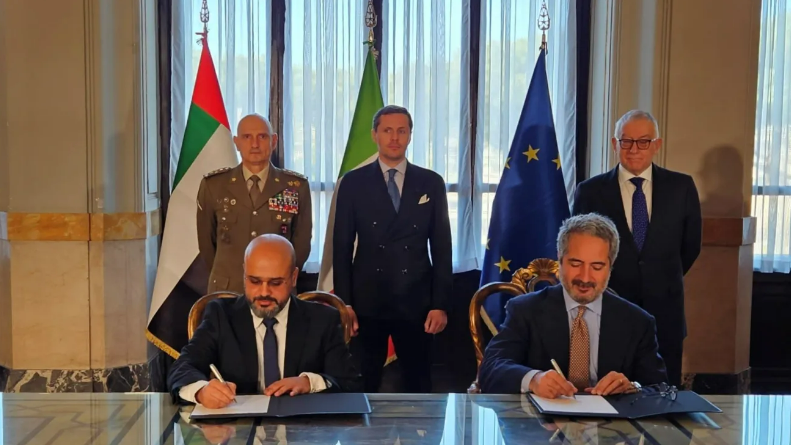New Delhi: United States’ former ambassador to India Richard R Verma has highlighted that the enduring strength of ties between the two countries is their “shared values,” which has transcended mere “transactional” buyer-seller relationship and formed the bedrock.
In an exclusive interview with ANI, the US Deputy Secretary of State for Management and Resources conveyed his optimism regarding the unique and special bond between the two nations, which is rooted in shared values that have been developed over decades.
Verma, who served as the US envoy from 2014-2017, asserted that the foundation of the relationship is built on a deep history of shared ideas about post-colonial independence, justice, civil rights, equality, and democracy.
“Anyone who asserts that we don’t have shared values, I think, doesn’t actually appreciate the history… going back decades and decades. Our great writers and philosophers over 150 years have been sharing the ideas about post-colonial independence, about the struggle for justice, about civil rights, about equality, about democracy. And that is the foundation. There’s a reason why there’s nearly 5 million Americans of Indian and South Asian descent in the United States,” Verma said.
“We are not just a transactional buyer-seller relationship. This is not just about interest,” the top US official said adding, “Of course, every country has interest, and those countries pursue those interests. We are uniquely situated,” he said.
The former ambassador highlighted the historical connections, citing instances like Mahatma Gandhi’s appreciation for Henry David Thoreau’s writings and Martin Luther King Jr being influenced by Gandhi. Verma stressed that the values shared between the two nations form the bedrock and foundation of their relationship, serving as the glue that holds them together.
“I could give you dozens and dozens of examples where our values form the bedrock and the foundation of this relationship, and it’s evident today. That’s what makes this relationship special and different. And ultimately, that’s what we have to stay true to. All of the other activities on top of it are important, but we can never lose sight of that foundation. That is the glue that holds us together,” Verma added.
Addressing concerns about the impact of election cycles on bilateral relations, Verma sought to assure that efforts to strengthen the US-India relationship are being redoubled.
General elections are scheduled within a couple of months in India and the US Presidential elections slated for November this year
“We are actually redoubling our efforts on the US-India relationship and you see that in the number of activities and just the way the president talks about the relationship, of course, the state visit last year,” the US Deputy Secretary of State stated.
The top US official also pointed out an increase in bilateral dialogues in a diverse range of activities and initiatives, spanning defence, emerging technologies, clean energy, and healthcare.
“I’m here because I wanted to let people know I’ve really never seen the relationship as strong and robust, as diverse as it is today,” he said.
“I just look at the number of bilateral dialogues we have coming up, the number of really interesting initiatives coming up from different in the defence area, from emerging technologies to clean energy, health, so much more,” Verma said.
Earlier this month, the US State Department approved the sale of 31 armed drones, missiles and other equipment to India for nearly USD 4 billion. The MQ-9B Predator drones deal had been announced during PM Narendra Modi’s visit to the US in June 2023.
Prime Minister Narendra Modi was on an official State visit to the US in June 2023, where he was accorded a ceremonial welcome by President Joe Biden and First Lady Jill Biden.
Verma noted that records in trade, defence, and people-to-people ties have been consistently broken, and expressed confidence in the durability of the India-US relationship beyond election cycles.
“We’ve broken every record that we keep in terms of trade and defence and people-to-people ties, visas issued. That will continue, election year or not an election year. We don’t have the luxury of kind of not engaging with the rest of the world. I think the world expects our leadership, And I think this relationship is too important,” Verma said.
Asked about the challenges posed by critiques on the political landscape in India, Verma acknowledged the presence of differences and emphasised the importance of addressing them through dialogue.
“I mean, look, we have… big noisy democracies in both capitals. I’ve certainly lived here and seen plenty of critiques about the United States. I’ve seen critiques in the United States about India. I And I also think when we have differences, we sit down and we address them. It is in our collective interest to support civil society,” Verma said.
He also highlighted the significance of supporting civil society, a free press, and the democratic aspirations of minority communities as shared goals that strengthen the collective interest of both nations. “It’s in our collective interest to support a free press. It is in our collective interest to support democratic aspirations of minority communities and to be more inclusive. That’s what our leaders talk about when they get together. That model helps, frankly, push back against the authoritarian and autocratic vision of the world, which does exist and is the counter-narrative.”
The former US Ambassador, who is currently on a visit to India, Sri Lanka, and Maldives underscored the need to stand together against authoritarian and autocratic visions, expressing his enthusiasm for the collaborative potential of the India-US relationship.
This report is auto-generated from a syndicated feed





















Discussion about this post